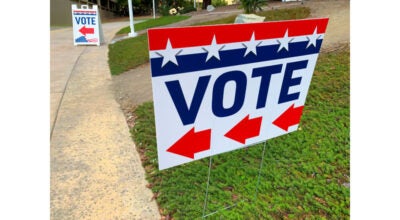What has happened to colleges and universities?
Published 7:58 am Monday, June 28, 2021
|
Getting your Trinity Audio player ready...
|
I took my first college course in the fall of 1963, the standard English Composition 101.
My last college course taken as a student was in the fall of 1982, a doctoral course on Philosophies of Education. I taught my last college courses in business, economics, and real estate in May of 2014 after which I retired as a full-time faculty member.
I recall vividly one of my professors that fall of 1963 saying the purpose of college is to question your preconceived thoughts and beliefs and to develop an openness to other ways of thinking. His point — there are many ways to view an issue, and you should make certain you have researched all sides and only then form your opinion.
In every college course I took as a student or taught as a faculty member, there were always numerous “sides to every story.” The only possible exceptions were in science and math courses where 2 + 2 is always 4. Encouraging differing points of view in business management and economics topics always lead to friendly debates as to which way to proceed in a certain situation. In order to maintain a bias-free discussion, professors rarely expressed their own opinion and grades were assigned based on the students’ analysis of the facts.
The current emphasis on United States and Virginia history should lead to excellent classroom discussions. The traditional approach to history lists 1776 as the true reference point of U.S. history. Project 1619 and Critical Race Theory (CRT) are emerging options to the traditional approach. The important point here — all three approaches should be included to some extent in classroom discussions and none should be “canceled” as if they never happened. The contexts of the times for historical events must be included to learn the whole picture. Only after students are exposed to all facets of a situation, and in proper context, can they form a truly educated opinion.
There are many research studies that indicate today’s college students are learning only one side of a situation and are not given the opportunity to see other options. In his book Restoring the Promise: Higher Education in America published in 2019, professor Richard Vedder states that college students today do 50-75% less academic work than college students did fifty years ago and also are awarded better grades. One reason for these outcomes, Vedder speculates, is the federal takeover of college financial aid programs which pressure colleges to keep students enrolled.
Education is at its best when all points of view are presented in the proper context.
ROBERT N. “BOB” HOLT is a Franklin native, a retired professor of business management and real estate at Southwestern Community College in Sylva, North Carolina. He holds bachelor’s, master’s and doctoral studies degrees from Virginia Tech and was a member of the university’s Corps of Cadets. His email address is hrobert@vt.edu.





